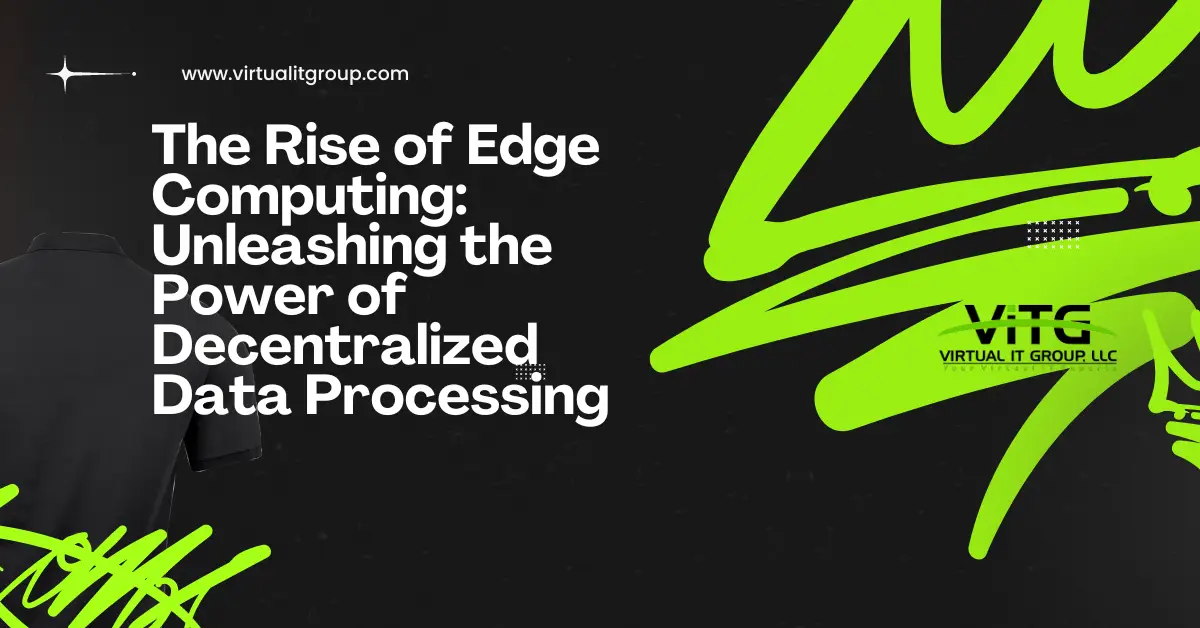In today’s data-driven world, latency – the time it takes for data to travel between source and destination – is a critical factor impacting performance across industries. Cloud computing has revolutionized access to computing power, but centralized data storage can lead to delays, especially for applications requiring real-time processing.
This is where edge computing emerges as a game changer. Edge computing decentralizes data processing by bringing it closer to the source of data collection. This distributed approach offers significant advantages, including:
- Reduced Latency: By minimizing the distance data travels, edge computing significantly reduces latency, leading to faster response times and real-time processing capabilities.
- Improved Efficiency: Processing data closer to its source eliminates the need to constantly send and receive data back to a central cloud server. This frees up bandwidth and reduces network congestion.
- Enhanced Security: Less reliance on centralized data storage can increase security by reducing the risk of data breaches and cyberattacks targeting core data centers.
- Offline Functionality: Edge devices can operate independently, even when offline, as they store and process data locally. This ensures continued functionality even during internet outages.
Applications of Edge Computing: Powering Innovation Across Industries
Edge computing is rapidly finding applications in various sectors, creating new possibilities, and optimizing existing processes. Here are some key examples:
- Internet of Things (IoT): With billions of connected devices generating data, edge computing is crucial for real-time processing and analysis of sensor data, enabling applications like predictive maintenance and smart city infrastructure.
- Manufacturing: Edge computing empowers real-time monitoring of production lines, optimizing efficiency and enabling predictive maintenance to prevent downtime.
- Retail: Analyzing customer behavior in real-time using edge computing allows for personalized recommendations and targeted advertising, enhancing customer experience and sales.
- Healthcare: Edge computing facilitates real-time analysis of medical data from wearable devices and sensors, leading to faster diagnoses and improved patient care.
- Automotive: Autonomous vehicles rely heavily on edge computing for real-time processing of sensor data, enabling critical decisions on navigation and safety features.
Challenges and Considerations for Implementing Edge Computing
While edge computing offers significant benefits, there are also challenges to consider:
- Security: The increased number of distributed processing nodes requires robust security measures to prevent data breaches and unauthorized access.
- Cost: Implementing and managing a network of edge devices across various locations can be more costly compared to a centralized cloud infrastructure.
- Complexity: Managing and maintaining a decentralized network of edge devices can be complex, requiring specialized expertise and resources.
The Role of IT Services in Implementing Edge Computing Solutions
A successful edge computing deployment requires careful planning and expert guidance. IT service providers like Virtual IT Group can play a crucial role by:
- Conducting Needs Assessment: Evaluating your business needs and identifying the most suitable edge computing solution.
- Designing and Implementing Infrastructure: Assisting with the design and implementation of a secure and scalable edge computing architecture.
- Security Management: Developing and implementing robust security protocols to protect data across all edge devices.
- Ongoing Support: Providing ongoing management and support for your edge computing infrastructure.
Explore our website to learn more about how Virtual IT Group can help your business implement a secure and efficient edge computing solution.
The Future of Edge Computing: A Decentralized and Connected Reality
Edge computing represents a significant shift in the way data is processed and utilized. As technology continues to evolve and data generation explodes, edge computing will play an increasingly critical role in powering real-time applications, enhancing security, and enabling a truly distributed and connected future.


